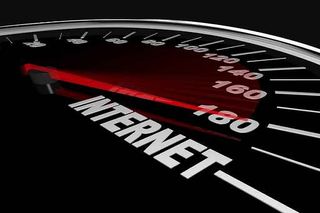Britons suffer slower than advertised broadband speeds
Findings from consumer rights group Which? suggest Britons are being short-changed when it comes to internet speeds.

British internet services regularly deliver slower speeds than advertised, according to consumer rights group Which?
The organisation surveyed 2,000 UK residents and found that 45 per cent had suffered slow speeds, and 60 per cent faced them frequently.
"The internet is an essential part of modern life, yet millions of us are getting frustratingly slow speeds and having to wait days to get reconnected when things go wrong," said Richard Lloyd, executive director of Which?.
"It's less superfast broadband, more super slow service from companies who are expecting people to pay for speeds they may never get."
Speed test website Ookla offered a different view, rating the UK's broadband performance positively. Its in-house consumer survey found British ISPs deliver speeds at 87.6 per cent of what they promise. This ranks ahead of the EU average (85.1 per cent).
Internet speeds are complicated by multiple factors outside of broadband connection. Web browsing depends on local and online traffic, server performance, the browser used, computer hardware, weather, malware, and router type and placement.
Which? went on to criticise ISPs for offering poor customer support. Its survey found that a quarter of people who lost their internet had to wait two days for the problem to be resolved. Ten per cent had to wait a week or longer.
Get the ITPro. daily newsletter
Receive our latest news, industry updates, featured resources and more. Sign up today to receive our FREE report on AI cyber crime & security - newly updated for 2024.
The group keeps a guide on its website for users to ask broadband providers to give them access to faster services or complain about poor service.
UK ISPs have got in to trouble in the past for making misleading claims about their connections. BT had to stop advertising its BT Infinity fibre broadband service when the Advertising Standards Authority ruled it was not eight times faster than the average overall speed.
Research from USwitch last year revealed no city in Britain had an average broadband speed that qualified as superfast. Even in major cities like London, existing connections consistently offered performance below what was advertised.
UK citizens want better internet. Findings from IET revealed that Britons would rather invest in faster broadband than airports or high-speed rails.
Prime Minister David Cameron has acknowledged the importance of faster connections, saying they would "provide a great boost for the economy and change the way many households, consumers and businesses use the internet."




